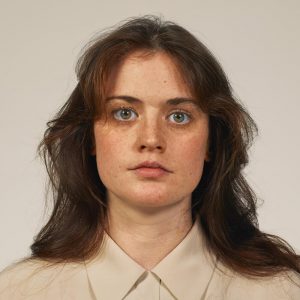Remote self-isolation gives rise to out-of-the-ordinary initiatives. Montréal-based quartet TOPS was recently invited to record a performance for the CBC – on Zoom, not live, and remotely. Three of the four band members were in Montréal, while drummer Riley Fleck, the only American member, was three hours apart – having sought refuge in California during the sanitary crisis. “We each recorded our track separately, and everything was put together afterward,” says Jane Penny, the main singer-songwriter of the dream-pop outfit, which recently released I Feel Alive, its fourth album.
 Remote self-isolation, without being able to play before an audience, also makes musicians restless. I Feel Alive might still be hot off the presses, but TOPS has nonetheless forged ahead and released a brand new two-song recording, both of them not on the album: “Anything,” and the gorgeous and languid “Hollow Sounds Of The Morning Chimes,” two that feel like they were inspired by Québec’s first heatwave of the season, which came unusually early last May. “Under the circumstances, making music has become a refuge for us,” she says.
Remote self-isolation, without being able to play before an audience, also makes musicians restless. I Feel Alive might still be hot off the presses, but TOPS has nonetheless forged ahead and released a brand new two-song recording, both of them not on the album: “Anything,” and the gorgeous and languid “Hollow Sounds Of The Morning Chimes,” two that feel like they were inspired by Québec’s first heatwave of the season, which came unusually early last May. “Under the circumstances, making music has become a refuge for us,” she says.
The apparent looseness of those new songs contrasts with the polished aesthetics of I Feel Alive, a record whose every minute detail – a word sung at just the right time, or a heavily researched synth sound – was finely crafted. I Feel Alive is a vibrant, lively offering where the quartet continues its mission to re-invent the pop sounds of 35 years ago.
“When we started in the early 2010s, a lot of people of that generation were skeptical of our sound,” says Penny. Such is the lot of “comebacks”: those who were there – and repulsed – the first time around, in this case, by ‘80s soft-rock, are weary of it. Yet to the new generation, it’s just another musical territory worth exploring.
“I believe we’re part of this first wave of musicians who recycle musical styles that have been ‘commercialized,’ and irked people back in their day,” says Jane laughing. “I think the internet is at the root of this movement, because it gave us access to these musical styles out of their original context. The timeliness of a sound or a musical style suddenly doesn’t matter anymore. It’s the fusion of ‘80s chart-toppers and today’s alt-pop. I find it interesting to recycle the aesthetics of music from another era, and apply them to contemporary creations.”
What makes I Feel Alive – and the rest of TOPS’s intelligently seductive output – so alluring is the fact that it’s entirely devoid of irony in its intent. There’s nothing more here than sincere songs with bubbly choruses, imbued with a little melancholy, and wrapped in old-fashioned guitar and keyboard orchestrations. “I find melancholy to be a more constructive emotion than sadness, because it implies a dose of introspection,” says Penny.
Although she’s is considered the creative force behind TOPS songs, Penny would rather be considered part of a “songwriting duo” alongside her colleague, multi-instrumentalist David Carrière. “David will sometimes write lyrics, but generally, he’ll come up with a hook or a chord progression and we’ll compose around that,” she says. “I have a hard time defining our respective roles and their boundaries when it comes to our work as composers.”
“Consider “Take Down,” for example, a ballad where Jane’s soft vocal timbre oscillates between two sets of textures, which gives the impression she’s having a conversation with herself. “On that one, we all built this groove that inspired me melodies I would hum<” she says. “That was my starting point to write the song itself, the lyrics and melodies I recorded. We’re a band, and sometimes the basic idea, the groove, the atmosphere, will be a collective effort, and that’s what gives me a direction towards a finished song. Other times, David will have a finished song that we then fine-tune together, while other times we write it just him and I. There are no rules: some songs we’ll work on for a year, and others are done in 30 minutes.”
No rules, except one: once a song is finished, it’s submitted to an in-depth analysis. “The goal of that is to make sure that we don’t become complacent and fall into the trap of songs that are nothing but a page out of a diary,” Jane insists. “We want to write songs that have many layers, songs you can listen to over and over again and find new meanings. I think those are the songs that withstand the test of time the best.”